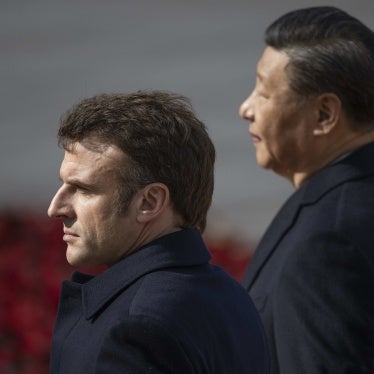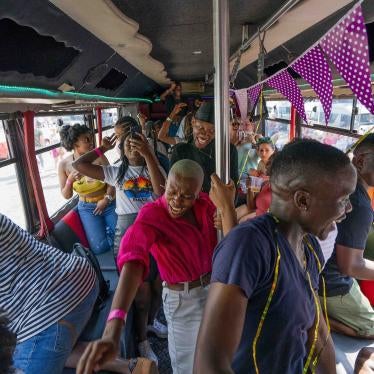“ Now we are vilified,” an Ahmadiyah imam told me last week at a mosque outside Jakarta that is threatened with closure. This is not the Indonesia that US President Barack Obama described last year on his visit to Jakarta, when he said, “Even as this land of my youth has changed in so many ways, those things that I learned to love about Indonesia — that spirit of tolerance that is written into your Constitution, symbolized in mosques and churches and temples standing alongside each other, that spirit that’s embodied in your people — that still lives on.”
In Bali this week, Obama should urge President Susilo Bambang Yudhoyono to protect the rights of religious minorities and take urgent steps to protect religious freedom.
Religious tolerance in Indonesia is in danger. There has been a surge in deadly sectarian attacks against religious communities and dozens of mosques and churches have been forced to close. In the first nine months of 2011, the Setara Institute, which monitors religious freedom in Indonesia, documented 184 incidents of religious violence — a higher rate than the annual average of 204 such attacks over the last four years. About 80 percent of these attacks took place on Java, which is predominantly Sunni Muslim, and targeted Christians, Shia Muslims, Bahai, and the Ahmadiyah, who consider themselves Muslim but whom many Muslims consider heretics.
As Obama said, religious freedom is protected under the nation’s Constitution. But as freedom of expression in Indonesia has grown since the fall of Suharto in 1998, so has intolerance and violence. Instead of protecting minorities, the government has promoted and enforced discrimination.
The Ahmadiyah mosque I visited last week in the Jakarta suburb of Bekasi is facing increasing pressure to close. The imam told me: “We’ve been here for 22 years. We have never faced these problems before. We are a part of this community.” The imam showed me threatening SMS messages warning him of violence if the mosque doesn’t close.
Indonesia’s national Ahmadiyah association, Jemaat Ahmadiyah, estimates that at least 30 Ahmadiyah mosques have been closed in recent years. In 2008 the national government passed a decree that prohibits the Ahmadiyah from practicing their faith. So far 16 provinces and regencies have followed suit, issuing local decrees banning the Ahmadiyah.
On Oct. 13, the mayor of Bekasi issued a decree banning all “Ahmadiyah activities” in the city. The exact meaning of “activities” is unclear, but every Friday since then the local Muslim clerical council, police and the military have gone to the community center to urge the Ahmadiyah to stop their religious services.
Attacks against the Ahmadiyah have gotten increasingly violent because perpetrators know sectarian violence is not seriously prosecuted in Indonesia. In a deadly attack in February, a 1,500-strong mob of Islamist militants beat three Ahmadiyah men to death and seriously injured five others in the village of Cikeusik, Banten. Although the brutal violence was captured on film, only 12 of the attackers were tried and they received prison sentences of just three to six months. The prosecutors claimed the Ahmadiyah provoked the attack and sentenced one victim who nearly lost an arm to six months in prison for assault and disobeying police orders.
The Ahmadiyah are not the only victims. This year, militants have burned down Christian churches in Temanggung, Central Java, and a suicide bomber targeted a church in Solo, killing himself and wounding 14 churchgoers. Churches in Riau were burned down in August and now, perhaps in retaliation, a mosque in predominantly Christian West Timor is facing similar pressure to close.
The upsurge in religious violence and the lack of state protection is akin to what happened in Pakistan, where he Ahmadiyah faced systematic and legalized persecution. This played into the hands of the Taliban and other militant sectarian groups. Now fewer and fewer voices in Pakistan are willing to speak up for religious minorities because they themselves wind up targets of deadly attacks.
Given Obama’s words on religious tolerance during his last visit, ignoring the growing religious violence now would show he is out of touch with reality in Indonesia. The United States has an interest in a stable, democratic Indonesia, and that demands a country that respects religious freedom. Urging Yudhoyono to speak out against religious intolerance and to seek a repeal of laws that inflame sectarian violence and discrimination should be at the top of Obama’s agenda.
Elaine Pearson is deputy director of the Asia Division at Human Rights Watch.









